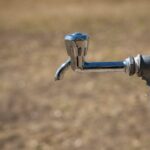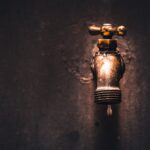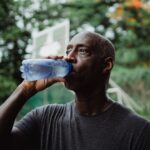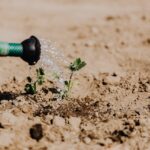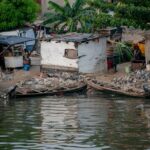How Water Quality Affects Cooking
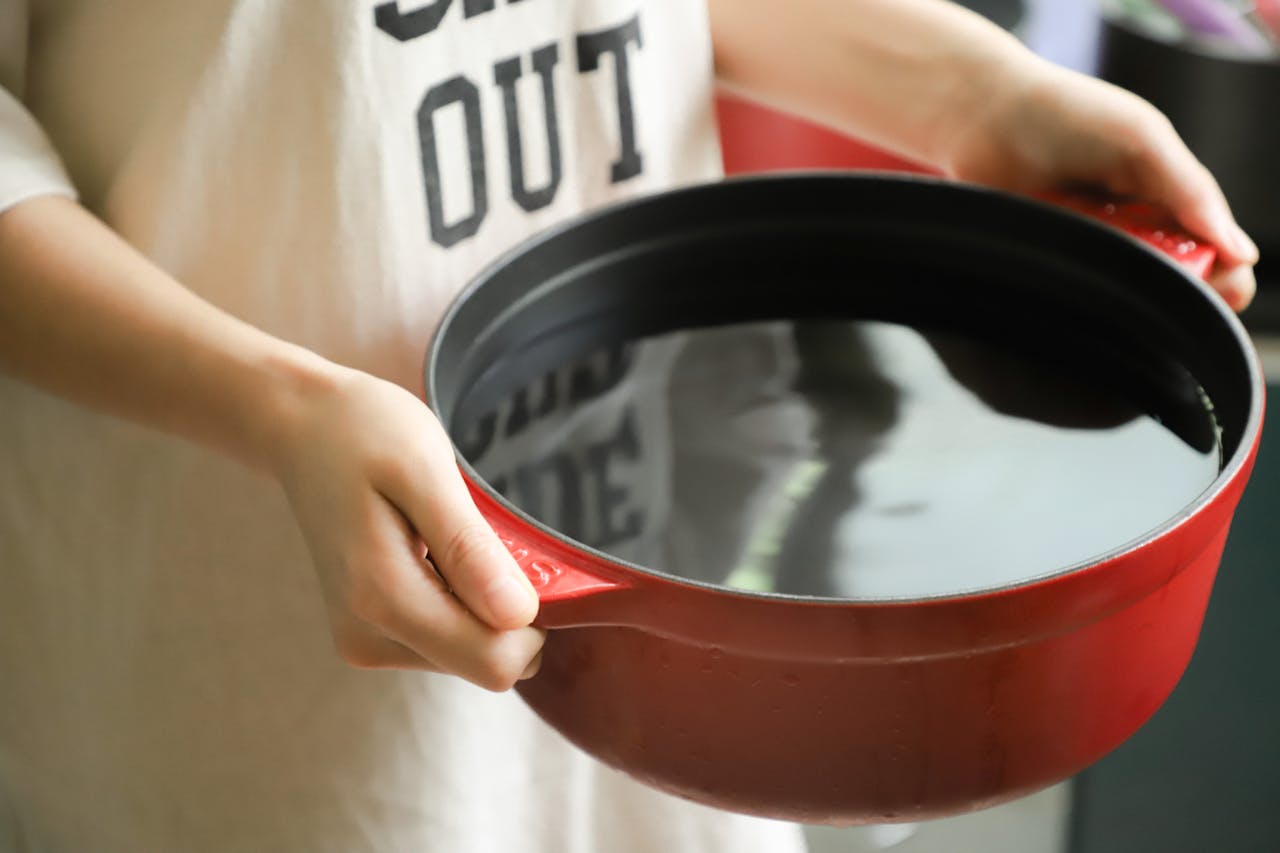
Water is often called the universal ingredient in cooking, and for good reason. It’s used in almost every dish we prepare, from boiling pasta or noodles to brewing coffee. But have you ever stopped to think about the quality of the water you’re using? Just like how fresh ingredients make a difference in your cooking, the quality of your water can impact your culinary creations in surprising ways.
In this article, we’ll explore how the water coming out of your tap can affect your cooking. We’ll look at what makes up water quality, how it changes the food we cook, and what you can do about it. Whether you’re a home cook or a professional chef, understanding water quality can help you take your dishes to the next level.
Understanding Water Quality
There are factors to consider in understanding water quality. Let’s take a look at the main factors:
- Hardness vs. softness: This refers to the amount of minerals, mainly calcium and magnesium, in your water. Hard water has high mineral content, while soft water has low mineral content. You might notice hard water leaving spots on your glasses or making it harder to work up a lather with soap.
- pH levels: This measures how acidic or alkaline your water is. A pH of 7 is neutral, below 7 is acidic, and above 7 is alkaline. Most tap water falls between 6.5 and 8.5.
- Mineral content: Besides calcium and magnesium, water can contain other minerals like iron, copper, and zinc. These can affect the taste and sometimes the colour of your water.
- Contaminants and impurities: This includes things like chlorine (used to disinfect water), sediment, or in some cases, harmful substances like lead or bacteria. While public water supplies are treated to remove dangerous contaminants, some may still be present in trace amounts.
How Water Quality Affects Different Cooking Methods
Different cooking methods can be affected by water quality in various ways:
- Boiling and simmering: Hard water can increase cooking times for foods like pasta or beans. It can also leave a residue on pots and pans.
- Baking and bread-making: Water hardness can affect gluten development in dough. Soft water might make for a stickier dough, while hard water can strengthen it.
- Brewing coffee and tea: The mineral content of water can significantly impact the extraction of flavours. Many coffee enthusiasts prefer slightly hard water for optimal brewing.
- Making soups and stocks: Hard water can make it difficult for flavours to fully develop and may leave a mineral taste in your final product.
Impact on Specific Foods
Water quality doesn’t affect all foods equally. Here’s how it impacts some common ingredients:
- Pasta and rice: These grains absorb a lot of water during cooking. Hard water can make them take longer to cook and might affect their texture.
- Vegetables: Some vegetables, like beans and lentils, may not soften properly in hard water. Green vegetables might lose their bright colour more quickly when cooked in alkaline water.
- Legumes and beans: These can be particularly sensitive to water hardness. Hard water can make beans tough and increase cooking times significantly.
- Meat and fish: While less affected than other foods, very hard water might slightly toughen meat during cooking.
Flavour Implications
Water quality can have a surprising impact on the taste of your food.
- How water can alter taste: Minerals in water can enhance or interfere with food flavours. For example, chlorine can impart a chemical taste, while calcium can sometimes add a pleasant mineral note.
- Regional water differences and local cuisine: Have you ever wondered why your homemade efo riro or jollof rice doesn’t taste quite the same as the ones you get in different parts of Nigeria? The unique mineral profile of local water can influence regional cuisines.
Take Lagos, for instance. The city’s water, which comes from both surface and groundwater sources, tends to be on the harder side due to its proximity to the coast. This mineral-rich water might contribute to the distinct taste of Lagos-style suya or the texture of eba made in the city.
Contrast this with the water in Jos, Plateau State, which is known for its natural springs and generally softer water. This could play a role in why Jos is famous for its burukutu (a local beer made from sorghum) and why vegetables grown in the area are particularly flavourful.
In the Niger Delta region, where water can have higher iron content due to the soil composition, local dishes like native soups might have adapted over time to work well with this specific water profile.
It’s worth noting that in many parts of Nigeria, especially in rural areas, people often rely on well water or boreholes. The mineral content of this groundwater can vary significantly from place to place, potentially influencing local cooking traditions and taste preferences.
Understanding these regional water differences can help explain why replicating a dish from another part of Nigeria might require more than just following the recipe – the water you use can make a difference too.
Textural Changes Due to Water Quality
Water quality doesn’t just affect flavour, it can change the texture of your food too:
- Effects on dough and batter consistency: Hard water can strengthen gluten, potentially making bread dough tougher and less sticky. This isn’t always bad – it can be great for crusty breads, but might not be ideal for cakes.
- Impact on cooked vegetable texture: Vegetables cooked in hard water might remain firmer, while those cooked in soft water could become mushy more quickly. This is especially noticeable with foods like dried beans or lentils.
While water quality can impact your cooking, it doesn’t mean you can’t make great food with the water you have. Understanding these effects can help you adjust your cooking methods to get the best results, no matter what kind of water comes out of your tap.
Nutritional Considerations
Water quality doesn’t just affect taste and texture, it can also impact the nutritional value of your food:
- Mineral absorption from cooking water: When you cook food in water, especially vegetables, some minerals from the water can be absorbed into the food. In areas of Nigeria with hard water, this might actually increase the calcium and magnesium content of your meals slightly.
- Potential health impacts of cooking with contaminated water: In some parts of Nigeria where access to clean water is a challenge, cooking with contaminated water can pose health risks. Boiling water kills many harmful microorganisms, but it doesn’t remove chemical contaminants. This is why organisations like AquaMaya are so crucial in their work to provide clean water access.
Common Water Issues in Cooking
Here are some common problems you might encounter due to water quality:
- Limescale buildup in appliances: If you’re in an area with hard water, like parts of Lagos or Kano, you might notice a white, chalky buildup in your kettle or pots. This is limescale, and while it’s not harmful, it can affect the efficiency of your appliances.
- Discoloration of food: In areas with high iron content in the water, like some parts of the Niger Delta, you might notice your rice or pasta taking on a slightly yellow or brown tinge.
- Off-flavours in beverages: Chlorine in treated water can affect the taste of tea or zobo (hibiscus drink). Many Nigerians prefer to use sachet or bottled water for drinking and cooking to avoid this issue.
Solutions for Improving Water Quality for Cooking
If you’re concerned about your water quality, here are some solutions:
- Filtration systems: Simple carbon filters can remove chlorine taste and odour. More advanced systems can reduce hardness and remove other contaminants.
- Water softeners: These systems remove minerals that cause water hardness. They’re not common in Nigerian households but are used in some hotels and restaurants.
- Bottled water alternatives: Many Nigerians already use sachet water or bottled water for drinking. While this can be used for cooking too, it’s not always practical or economical for large-scale cooking.
Testing Your Water Quality
To really understand what’s in your water, you might want to test it:
- Home testing kits: These are available in some big cities and can give you a basic idea of your water’s hardness, pH, and chlorine levels.
- Professional water analysis: For a more comprehensive analysis, you can send a sample to a laboratory. In Nigeria, the Standards Organization of Nigeria (SON) or some universities offer water testing services.
Adapting Recipes for Different Water Types
Once you know your water quality, you can adapt your cooking:
- Adjusting leavening agents in baking: If you’re in an area with hard water, you might need to use a bit less baking soda in your puff-puff or cake recipes. The minerals in hard water can react with the leavening agents.
- Modifying cooking times and temperatures: In areas with hard water, you might need to cook beans or ewedu a bit longer. Conversely, if you’re using very soft or filtered water, keep an eye on your food as it might cook faster than you’re used to.
- Balancing flavours: If your water has a distinct taste, you might need to adjust your seasonings. For example, if your water is high in minerals, you might be able to use a bit less salt in your soups or stews.
Cooking, really, is all about adaptation and finding what works best for you. Understanding your water quality is just another tool to help you make the most delicious meals possible, whether you’re cooking classics or experimenting with new recipes.
Environmental and Sustainability Aspects
Water quality isn’t just about taste, it’s also about sustainability. Let’s consider some sustainability aspects:
- Water conservation in cooking: In many parts of Nigeria, especially during the dry season, water can be scarce. Using water efficiently in cooking isn’t just good for your wallet, it’s good for the environment too. Try methods like steaming vegetables instead of boiling them, or reusing pasta water to water plants.
- Reducing bottled water use: While many Nigerians rely on sachet or bottled water for drinking and cooking, this creates a lot of plastic waste. If you have access to safe tap water, consider using a reusable filter instead. In areas where tap water isn’t safe, community-level water treatment solutions could be more sustainable than individual bottled water use.
- Impact of water treatment on local ecosystems: In some areas, the chemicals used to treat water can affect local rivers and streams when they’re washed down the drain. Being mindful of this can help protect Nigeria’s rich biodiversity.
Global Perspectives on Water Quality and Cooking
Water quality affects cooking all around the world, and Nigeria is no exception.
- Traditional cooking methods adapted to local water conditions: Many traditional Nigerian cooking methods have evolved to work well with local water. For example, the practice of washing and soaking rice before cooking helps remove excess starch, which can be particularly helpful in areas with hard water.
- How changing water quality affects traditional cuisines: As water treatment improves in some areas and declines in others due to pollution, it can affect local foods. For instance, the taste of palm wine can vary depending on the water content of the soil where the palm trees grow.
- Comparison with other countries: In some countries, like Japan, they have achieved nationwide water coverage and high quality of potable water. They basically supply safe water fit for all kinds of cooking. While this isn’t common in Nigeria yet, the growing interest in local and traditional foods might lead to more awareness of how local water affects cuisine.
- Cultural significance of water in cooking: In many Nigerian cultures, water plays a significant role in cooking beyond just being an ingredient. From the water used in pounding yam to the importance of clean water in preparing ceremonial dishes, understanding water quality can deepen our appreciation of culinary traditions.
Conclusion
Water quality might not be the first thing you think about when you step into the kitchen, but it plays a crucial role in cooking.
Key points:
- Water hardness, pH, and mineral content can affect the taste, texture, and cooking time of your food.
- Different cooking methods and foods are affected by water quality in various ways.
- The water in different regions of Nigeria can influence local cuisines.
- There are ways to test your water quality and adapt your cooking accordingly.
Importance of being aware of your water quality for optimal cooking results: Understanding your local water can help you adjust recipes, troubleshoot cooking issues, and even appreciate the unique flavours of your region’s cuisine.
As awareness of water quality grows, we might see more attention paid to how it affects our food. This could lead to new culinary innovations, as well as renewed appreciation for traditional cooking methods that work well with local water conditions.
Regardless of what you’re making, always remember that water is more than just a basic ingredient, it’s a key player in the chemistry of cooking. By understanding your water, you can take your cooking to the next level and gain a deeper appreciation for the complex factors that make Nigerian cuisine, for instance, so diverse and delicious.
It is worth noting that cooking without water is inevitable, and the need for access to clean, safe water is paramount. This and many more reasons is why AquaMaya is in existence. AquaMaya is on a mission to deliver clean water access to 10 million people in West Africa, and reduce child mortality from waterborne diseases. With your support, we will make life better. Visit us on our website to learn more.
Sources:
1. https://www.chefsteps.com/ingredients/water
2. https://www.raynewater.com/how-to-test-your-water-quality-at-home-without-a-kit/
4. Bhagwat VR. Safety of Water Used in Food Production. Food Safety and Human Health. 2019:219–47. doi: 10.1016/B978-0-12-816333-7.00009-6. Epub 2019 Aug 9. PMCID: PMC7150035. https://pmc.ncbi.nlm.nih.gov/articles/PMC7150035/

